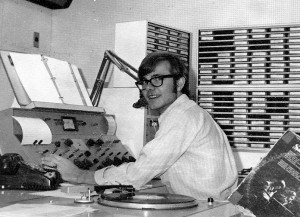WCAR DUMPS MOR CONSULTING SERVICE; NEW PROGRAM MANAGER NAMED
DETROIT — WCAR, the 50,000-watt station here, was revamped in a surprise move last week as the firm consulting the station, Programing db, was replaced by a full-time program manager, C. J. Jones. Neil McIntyre, the previous program director, resigned.
First move by the new program manager Jones was to chop the playlist to 30 records, while adding five new hitbounds. In addition the station will be playing selected cuts from two to five albums, The firm of Programing db had consulted the station for more than a year and only recently switched the format from MOR* to rock. Jones said that when he took over the station Monday (November 1), there were more than 70 records on the playlist. “The air personalities had format clocks that had no real direction and the station paid very little attention to mechanics.”

Under Jones, WCAR air-personalities (and he plans to retain them all, if possible) will be allowed to rap between records to some extent — “say three seconds… or even 25 seconds… but I can’t visualize anything so super important that it needs 25 seconds to say it,” as Jones reiterated. Basically, the station will be a “more music” station, “but with personality, we’ve got some great radio professionals on the air here.” Air personalities include Dan O’Shea 6-10 a.m., Dave Prince 10-2 p.m., Scott Regen 2-6 p.m., Ron O’Brien 6-10 p.m., Ed Busch 10-2 a.m. and Jim Keene 2-6 a.m.
From the MCRFB Aircheck Library, featuring:
(Note: three airchecks when WCAR was MOR before the format switch).
“WCAR is a real rarity–the best radio opportunity in the nation. It has a good frequency, 1130 on the dial, 50,000 watts day-timer and 10,000 watts during nights, and it’s well financed. The major station in the market, CKLW, is more or less a time and temperature station. I feel we can succeed by playing a hell of a lot of music per hour.” And he felt that the ruling calling for Canadian radio stations to play a hefty percentage of Canadian product would be to the advantage of WCAR.
Jones is actually a consultant himself. He took responsibility for taking over WFDF in Flint, Michigan, on October 1, 1970, and took it to No. 1 in the market. Currently, he also consults WJIM in Lansing, Mich. He will continue to serve these two stations as consultant, but his major priority at the moment will be focused on WCAR.
WCAR has acquired a semi-custom set of jingles from TM Productions in Dallas–a set using the basics as the jingles package featured on the Pacific & Southern Broadcasting stations.
Jones will be doing the music chores at WCAR himself. The rotation pattern at the station “will concentrate on the top 10 selling records, plus the up-and-coming records (meaning: the records going up the station’s playlist rather than those dropping down). Oldies will be will be programmed fairly heavily in the morning drive period and in the mid-day, “but the format is by no means an oldies format. We will be willing to break a new record if we feel it’s going to be a hit, but not five in a week,” he said, regarding the new records added each week. Both WFDF and WJIM has a playlist of 40 records, plus five new records per week. Each station’s music is picked separately — the other two stations have their own program and music directors. END.
(Information and news source: Billboard; November 6, 1971).
![]()
